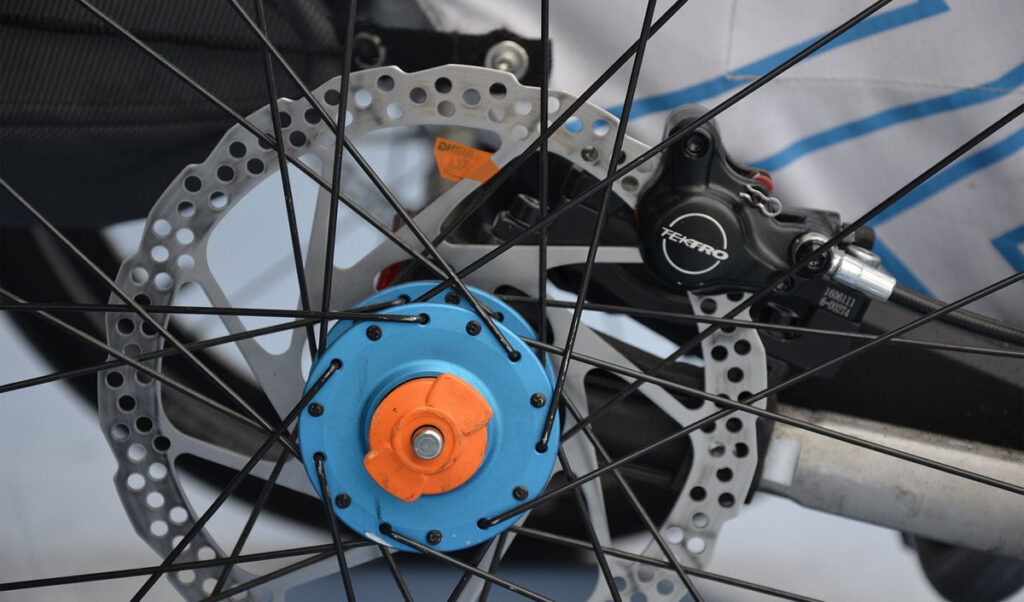Which is Better for Trailer Brakes: Electric or Hydraulic Brakes?
-
 2022-08-30
2022-08-30
-


Trailer brakes are an essential safety feature for any vehicle towing a trailer. Whether you’re hauling a camper, a boat, or a heavy load of cargo, you need a way to stop and control your trailer. But there are two main types of brakes for trailers – electric and hydraulic. So which is better for trailer brakes?
In this article, we’ll go over the advantages and disadvantages of electric and hydraulic brakes for trailers, and discuss the factors to consider when choosing the right type of brakes for your needs. We’ll also compare the cost and safety of electric and hydraulic brakes, and look at the common problems and maintenance requirements of both types of brakes.
Introduction to Trailer Brakes
Trailer brakes are designed to help you control and stop your trailer while towing. They work in conjunction with the brakes of your tow vehicle, providing extra braking power when needed. There are two main types of brakes for trailers – electric brakes and hydraulic brakes.
Electric brakes are powered by the electrical system of your tow vehicle, while hydraulic brakes are powered by the hydraulic system of your tow vehicle. Both types of brakes are designed to provide extra braking power when towing a trailer, but they have different advantages and disadvantages.
Advantages and Disadvantages of Electric Brakes
Electric brakes are an affordable and easy-to-install option for trailer brakes. They are powered by the electrical system of your tow vehicle, and require no additional hardware for installation. Electric brakes are also typically easier to maintain than hydraulic brakes, as they don’t require any complex parts or regular maintenance.
However, electric brakes can be less powerful than hydraulic brakes, and may not be suitable for heavier trailers or for towing in hilly terrain. Electric brakes also require the tow vehicle to be in good working condition and have a functioning electrical system.
Advantages and Disadvantages of Hydraulic Brakes
Hydraulic brakes are a more powerful option for trailer brakes. They are powered by the hydraulic system of your tow vehicle, and provide more braking power than electric brakes. This makes them a better option for towing heavier trailers and for towing in hilly terrain.
However, hydraulic brakes are more complex than electric brakes, and require more expensive hardware and regular maintenance. They also require the tow vehicle to be in good working condition and have a functioning hydraulic system.
Factors to Consider when Choosing Trailer Brakes
When choosing the right type of brakes for your trailer, there are a few factors to consider. The weight of your trailer is the most important factor, as heavier trailers will require more braking power. If your trailer is on the heavier side, you may want to consider hydraulic brakes for extra stopping power.
The terrain you’ll be towing in is also important. If you’ll be towing in hilly terrain, you’ll need brakes with extra stopping power. If you’ll be towing in flat terrain, electric brakes may be sufficient for your needs.
Finally, you should consider the condition of your tow vehicle. If your tow vehicle has a functioning electrical system and hydraulic system, you can choose either type of brakes. However, if your tow vehicle is in poor condition or doesn’t have a functioning hydraulic system, you may want to choose electric brakes instead.
Cost Comparison of Electric and Hydraulic Brakes
The cost of electric and hydraulic brakes can vary depending on the type of trailer and the size of the brakes. Generally speaking, electric brakes are more affordable than hydraulic brakes. Electric brakes typically cost around $200 for a set of four, while hydraulic brakes can cost upwards of $400 for a set.
Safety Considerations for Electric and Hydraulic Brakes
Both electric and hydraulic brakes are designed to provide extra braking power when towing a trailer. However, hydraulic brakes are typically more powerful than electric brakes, and may be a better option for heavier trailers or for towing in hilly terrain. It’s important to make sure your trailer brakes are well-maintained and in good working condition, regardless of the type of brakes you choose.
Common Problems with Electric and Hydraulic Brakes
Electric brakes can be prone to problems with their electrical systems, such as corroded wiring or bad connections. Hydraulic brakes can be prone to problems with their hydraulic systems, such as worn hoses or bad seals. It’s important to regularly inspect and maintain your trailer brakes, regardless of the type of brakes you choose.
Maintenance and Repair of Electric and Hydraulic Brakes
Electric brakes are typically easier to maintain than hydraulic brakes, as they don’t require any complex parts or regular maintenance. However, it’s still important to inspect your electric brakes regularly and make sure the connections and wiring are in good condition.
Hydraulic brakes require more frequent maintenance, as they have more complex parts that need to be inspected and maintained. It’s important to check the hoses and seals regularly, as well as make sure the fluid levels are correct.
Conclusion
When it comes to trailer brakes, electric and hydraulic brakes each have their own advantages and disadvantages. Electric brakes are an affordable and easy-to-install option, while hydraulic brakes are more powerful and suitable for towing heavier trailers. It’s important to consider the weight of your trailer, the terrain you’ll be towing in, and the condition of your tow vehicle when choosing the right type of brakes for your needs.
Ultimately, which is better for trailer brakes – electric or hydraulic – depends on your individual needs and preferences. If you’re looking for an affordable and easy-to-install option, electric brakes may be the right choice for you. If you’re looking for more powerful brakes for heavier trailers or for towing in hilly terrain, hydraulic brakes may be the better option.



